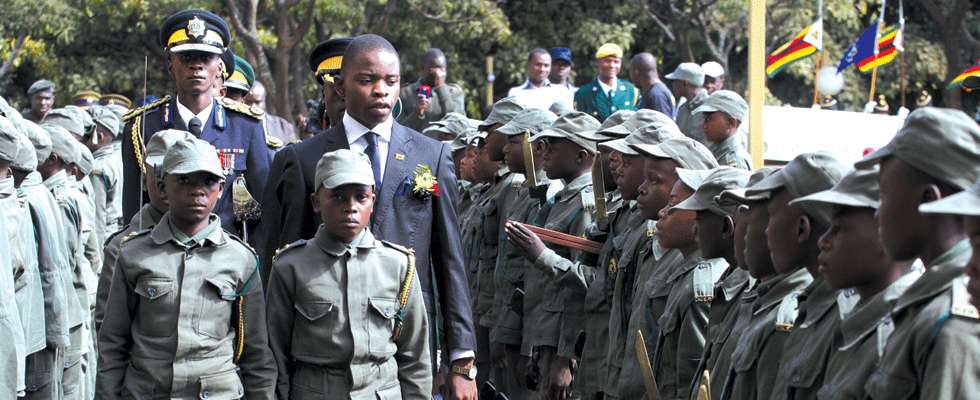
In 1991 the government established Zimbabwe Junior Parliament in a bid to cultivate leadership skills in children and allow them to participate in the national agenda, while addressing other children’s concerns.
BY WINSTONE ANTONIO
The Junior Parliament came into existence as a result of the Day of the African Child commemorated annually on June 16. This followed a declaration by the African Union heads of State to pay tribute to the 1976 protests by schoolchildren in Soweto, South Africa.
The Junior Parliament mirrors the national Parliament set-up where every constituency in the country’s 10 provinces has a child MP. Saturday marks the official opening of the 23rd session of the Junior Parliament of Zimbabwe in Harare.
Being a child president and a junior MP in Zimbabwe comes with all the flamboyance one needs, but life after it can be hell. During the official opening of Child Parliament, the child president is chauffeur-driven, saluted and escorted to his esteemed seat.
For the duration of his tenure, the child president is given first-class treatment at State functions. He is also promised better education, raising prospects for a better life.
In the eyes of ordinary teenagers, becoming a member of Junior Parliament, especially being the child president, is the height of achievement.
Zanu PF MP for Mutasa South Irene Zindi once questioned why the government was failing to ensure that children who once served in the Junior Parliament were given support after completing their terms. After holding such a high post like a junior MP or child president, one is regarded as a role model for youths and must lead by example.
- Chamisa under fire over US$120K donation
- Mavhunga puts DeMbare into Chibuku quarterfinals
- Pension funds bet on Cabora Bassa oilfields
- Councils defy govt fire tender directive
Keep Reading
In 2011, four junior MPs (two from Manicaland, two from the Midlands Province), dropped out of school after failing to raise schools fees in a reflection of the country’s economic woes. In an interview with NewsDay, Tanaka Manyadza, who was then a board member of the Zimbabwe Youth Council (ZYC)confirmed the four could not finish their tenure of office.
“We have four cases of junior parliamentarians who failed to proceed with education. As such, they are not seen as role models anymore,” he said.
Manyadza appealed to the government to pay fees for junior MPs, who included the junior speaker of Parliament, senators, chiefs and the presidium.
“We will not be asking for too much from the government if we appeal for payment of fees for the junior MPs,” he said. A former junior MP, Darlington Mafa, in the same year (2011) said polarisation in the country’s political environment had also spilled into the junior Parliament, making implementation and co-ordination of programmes difficult.
Former child president Nigel Ngoni Gwanzura once berated the ZYC, custodians of the Junior Parliament, over the way they ran the legislature.
“The Junior Parliament is not being run the way it is portrayed every June 16, where there is huge media coverage. It is portrayed as a very big event by the ZYC,” said Gwanzura. He said during his tenure he was assured that he would be seconded to a South African university under the Presidential Scholarship, but that did not materialise.
“When you become a child president, they give you assurance that everything will be taken care of, but once you take the post you find you have to bear allegiance to them and work on their plans which include complicated things like uttering political statements and even invitations to attend political rallies,” Gwanzura said. “We were given empty promises that we were going to be considered for the Presidential Scholarship scheme, but that never happened. Instead, when I went to ask about my application, they suggested that I join the Central Intelligent Organisation. I was shocked and I refused.”
Gwanzura said the children leaders were sometimes made to utter political statements.
“Child Parliamentarians should be spared from serious political party activity as their duties are only to speak for children’s rights and the ZYC should concentrate on promoting the rights of children and youths.”
In 2011, speaking during the closing session of the 18th Session of the Junior Parliament, Gwanzura said junior MPs were trivialised and ignored as most of the policy changes they proposed were not implemented.
“Ministers and MPs need to take the Junior Parliament seriously because they have a right to be heard as children,” Gwanzura said. He said junior MPs were facing a lot of challenges in that people viewed them as politicians and yet they did not belong to any political party.
“Junior MPs were not considered in the Presidential Scholarship programme despite sacrificing a lot of their time addressing issues of national importance,” he said.
However, ZYC said because of budgetary constraints some of the promises might not be fulfilled.
“To a certain extent, promises made to the junior parliamentarians are being fulfilled as they are being involved in social responsibility programmes in their respective provinces. However, because of budgetary constraints, some of the promises might not be fulfilled,” said ZYC public relations manager Tanzikwa Guranungo. “They are not neglected and their term of office is just one year. Those who excel are absorbed by our local universities and colleges while others are enrolled at vocational training colleges.” Guranungo dismissed claims that during their term of office, junior MPs were forced to attend political gatherings.
“The junior parliamentarians are not forced to attend political gatherings, but instead they work closely with their senior counterparts in different programmes in their constituencies,” he said.











